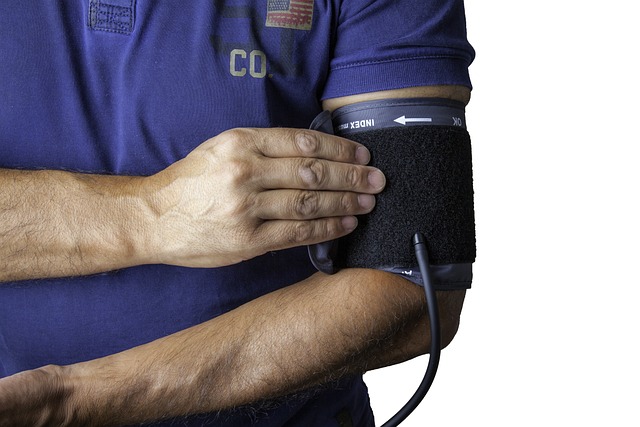How to Become a Medical Assistant in New Jersey: Start with Training
Medical assistant roles are becoming more accessible in New Jersey. Whether you live in a large city or a smaller area, you may not need prior experience to begin. Training programs are available to help newcomers enter the field confidently. With growing healthcare demand, this path offers hands-on work and long-term job potential.

What Does a Medical Assistant Do in New Jersey Healthcare?
Medical assistants in New Jersey perform a blend of administrative and clinical duties that keep healthcare facilities running smoothly. On the administrative side, they schedule appointments, manage patient records, handle insurance verification, and coordinate billing processes. These tasks require attention to detail and strong organizational skills.
Clinical responsibilities vary by workplace but often include taking vital signs, preparing patients for examinations, assisting physicians during procedures, and collecting laboratory specimens. Some medical assistants also perform basic laboratory tests, administer medications under supervision, and provide patient education about treatments or medications.
What Training Requirements Exist Across New Jersey?
New Jersey does not mandate formal certification for medical assistants, but most employers prefer candidates who have completed accredited training programs. These programs typically last six months to two years, depending on whether you pursue a certificate, diploma, or associate degree.
Accredited programs must meet standards set by organizations like the Commission on Accreditation of Allied Health Education Programs (CAAHEP) or the Accrediting Bureau of Health Education Schools (ABHES). Students learn medical terminology, anatomy, pharmacology, clinical procedures, and healthcare administration through classroom instruction and hands-on practice.
Many New Jersey medical assistants choose to obtain national certification through the American Association of Medical Assistants (AAMA) or the National Healthcareer Association (NHA). While not legally required, certification demonstrates competency and often leads to better job opportunities and higher wages.
How Do You Choose the Right Training Program?
Selecting the right medical assistant training program requires careful consideration of several factors. First, verify that the program holds proper accreditation from CAAHEP or ABHES, as this ensures quality education and makes you eligible for national certification exams.
Consider the program format that fits your lifestyle. Traditional classroom programs offer structured learning and direct interaction with instructors, while online programs provide flexibility for working adults or those with family obligations. Hybrid programs combine both approaches, offering online coursework with in-person clinical training.
Location and scheduling matter too. Programs are available at community colleges, vocational schools, and private institutions throughout New Jersey. Evening and weekend classes accommodate various schedules, and some programs offer accelerated options for faster completion.
Where Can You Find Quality Training in Your Area?
New Jersey offers numerous medical assistant training opportunities across the state. Community colleges like Bergen Community College, Middlesex County College, and Camden County College provide comprehensive programs with strong clinical components. These institutions often have established relationships with local healthcare facilities for externship placements.
Private vocational schools such as Eastwick College and Lincoln Technical Institute offer focused medical assistant programs with smaller class sizes and intensive training. These programs may complete faster than community college options but typically cost more.
Online options include Penn Foster Career School and Purdue University Global, which provide flexibility while maintaining rigorous academic standards. These programs require self-discipline but allow students to study while maintaining current employment.
What Unique Opportunities Exist for Medical Assistants in New Jersey?
New Jersey’s diverse healthcare landscape creates unique opportunities for medical assistants. The state hosts major medical centers like Robert Wood Johnson University Hospital and Hackensack Meridian Health, offering specialized training experiences and career advancement potential. These large systems often provide continuing education opportunities and clear pathways for professional growth.
The state’s proximity to New York City and Philadelphia expands job markets significantly. Many New Jersey residents work in these metropolitan areas, taking advantage of higher wages while maintaining lower living costs. Additionally, New Jersey’s aging population drives demand for medical assistants in geriatric care, rehabilitation facilities, and home healthcare services.
Specialty practices thrive throughout New Jersey, from cardiology and oncology to dermatology and orthopedics. Medical assistants in these settings often earn higher wages and develop specialized skills that enhance career prospects.
What Are the Cost Considerations for Training Programs?
Medical assistant training costs vary significantly based on program type and institution. Community college programs typically range from $3,000 to $8,000 for in-state residents, while private vocational schools may charge $10,000 to $20,000 for comprehensive programs.
| Institution Type | Program Length | Cost Range | Additional Benefits |
|---|---|---|---|
| Community Colleges | 12-24 months | $3,000-$8,000 | Financial aid, lower cost, transferable credits |
| Private Vocational Schools | 6-12 months | $10,000-$20,000 | Smaller classes, career services, faster completion |
| Online Programs | 6-18 months | $4,000-$12,000 | Flexibility, self-paced learning, work while studying |
Financial aid options include federal grants, student loans, and scholarship opportunities. Many employers offer tuition reimbursement programs for employees pursuing medical assistant training. Veterans may qualify for GI Bill benefits, and some programs accept workforce development funding for eligible students.
Prices, rates, or cost estimates mentioned in this article are based on the latest available information but may change over time. Independent research is advised before making financial decisions.
Starting a career as a medical assistant in New Jersey offers stability, growth potential, and the satisfaction of helping others. With various training options available and strong job demand throughout the state, this healthcare career path provides accessible entry into a rewarding profession. Research programs carefully, consider your personal circumstances, and choose the training approach that best supports your career goals.
This article is for informational purposes only and should not be considered medical advice. Please consult a qualified healthcare professional for personalized guidance and treatment.




